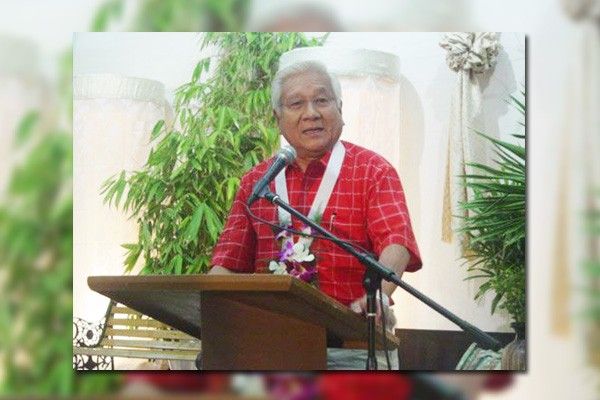SC set asides Ombudsman's graft charge vs ex-Cavite gov

MANILA, Philippines —A division of the Supreme Court has set aside the Office of the Ombudsman’s finding that former Cavite Governor Erineo “Ayong” Maliksi should be held accountable for an alleged anomaly surrounding the purchase of lots for informal settlers to be affected by the Light Rail Transit 1 extension project.
The Office of the Ombudsman earlier charged Maliksi with violation of Section 3(e) of Republic Act 3019 or the Anti-Graft and Corrupt Practices Act.
The Ombudsman said that Maliksi and former provincial accountant Doris Ensomo “conspired” with Cynthia Montesclaros—a private respondent—in giving “unwarranted benefits, advantage or preference” to the latter and other owner of the parcels of lands to be purchased by the local government of Cavite.
READ: Ex-Cavite governor faces graft rap over relocation project
The Light Rail Transit Authority earlier granted the Cavite government, then under the helm of Maliksi, P500 million for the relocation of about 2,000 families to be affected by the LRT1 South Extension Project.
Based on the charge sheet prepared by graft investigation and prosecution officer Julie Mercurio, the provincial government, in January 2009, “unlawfully” paid Montesclaros and the other landowners a total of P26,492,667 supposedly representing their disturbance compensation, five percent broker's commission, capital gains tax and documentary stamp tax.
Maliksi and Ensomo sought the SC and filed a petition for certiorari and prohibition against the Ombudsman’s resolution that found probable cause to charge them with violation of anti-graft act.
SC: Ombudsman failed to prove bad faith, negligence, partiality
The SC’s First Division held that the Ombudsman “failed to demonstrate the presence of evident bad faith, gross inexcusable negligence, or manifest partiality” in the payment.
The Court also held that the Ombudsman’s findings “did not show that they acted with manifest partiality, evident bad faith or inexcusable negligence.”
“Without applicable legal basis, the petitioners’ approval of the payment of the tenants’ disturbance compensation alone is insufficient to engender a reasonable belief that the petitioners have violated Section 3(e) of RA 3019,” the First Division’s resolution read in part.
The high court granted the petition for certiori and ruled to set aside the Ombudsman’s resolution dated March 10, 2017 and order dated July 31, 2017 that found probable cause to charge them.
- Latest
- Trending



























